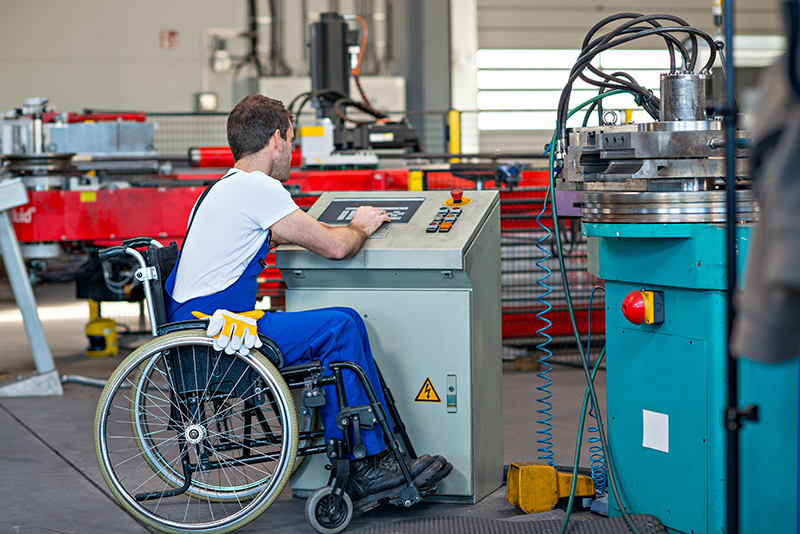
Online training course on design of human-centred workplaces
Objetivos
In order to increase flexibility, agility, productivity and competitiveness in factories of the future, it will be needed a "Human-centred" perspective.
Increasing complexity of manufacturing systems and processes creates the need for skilled-workers. In addition, they must be supported by appropriate tools providing them with assistance for operations along the entire production chain in factories. And, by other hand, they need further development of their competences to be always up.
The new advanced human-machine interfaces for workers must be designed, considering: (i) usability and the related learning process; (ii) physical, sensorial and cognitive interaction; and (iii) fulfilment of health and safety conditions during human-machine interaction.

Putting people at the centre of future factories will provide a stimulating environment for the employees, and make the most from their knowledge and skills, in particular through life-long learning and training. This approach would lead European manufacturing industry to make a qualitative leap towards new people-centred workplaces.

The Sixth European Working Conditions Survey (6th EWCS) of 2016, indicates that workers experiencing more physically demanding working conditions (mainly related to non adapted ergonomic design of workplaces) report a higher prevalence of negative health outcomes, decreasing working days and productivity. The cost of these disorders has been estimated to range between 0.5 and 2% of GDP (Gross Domestic Product), attending the European Agency for Safety and Health at Work (2000). To meet this need of human-centred workplaces, it is necessary to undertake the following key actions:
1. To provide companies with Key Enabling Technologies for an automated and continuous adaptation of work environments to workers.
2. To integrate Health and Safety at Work (HSW) issues with production issues.
3. To train professionals in the design of workplaces, processes and machinery that consider individual requirements, needs and capacities of workers.
These actions are not currently implemented at European companies, especially in SMEs.

The objectives of Train4HCWork are to implement and set the basis for a European dissemination of a new online course focused on the design of human-centred workplaces. Training contents should cover some important issues for a human-centred design, integrating knowledge in Ergonomics, HSW and productivity:
1. Application of human-centred knowledge to the design of workplaces.
2. Design requirements included in related standards, like ISO14738 (Safety of machinery- Anthropometric requirements for the design of workstations at machinery), EN1005-1 to 5 (Safety of machinery- Human physical performance), EN 47-1 to 3 (Safety of machinery- Human body measurements) or EN 614 (Ergonomic design principles).
3. Tasks assignment based on matching job demands with workers' capacities, skills and knowledge.
4. Integration of productivity and human-centred manufacturing (e.g. integration of MTM and Ergonomics).
Empresas colaboradoras
Coordinator:Instituto de Biomecánica de Valencia (IBV)
Partners:
TECHNISCHE UNIVERSITAT DARMSTADT
FEDERATION OF EUROPEAN ERGONOMICS SOCIETIES
UNIVERSITE GRENOBLE ALPES
STRUCTO INGENIEROS CONSULTORTES S.L.
Duración y referencia
Fecha de inicio: 01-10-2018
Fecha de finalización: 31-03-2021
Referencia del proyecto: 2018-1-ES01-KA203-050887




